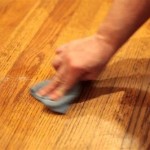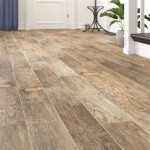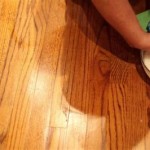Paint Remover For Wood Floors
Paint can be a great way to update the look of your wood floors, but it can also be a pain to remove if you change your mind or if the paint starts to chip or peel. There are a few different types of paint remover that you can use on wood floors, but it's important to choose the right one for the job. If you're not sure which type of paint remover to use, it's always best to consult with a professional.
There are two main types of paint remover: chemical and mechanical. Chemical paint removers are typically made with methylene chloride, which is a powerful solvent that can dissolve paint. Mechanical paint removers, on the other hand, use abrasives to scrape the paint off the floor. Chemical paint removers are more effective than mechanical paint removers, but they can also be more dangerous. Methylene chloride is a toxic chemical that can cause respiratory problems, dizziness, and nausea. If you're using a chemical paint remover, it's important to wear a respirator and to work in a well-ventilated area.
Mechanical paint removers are less effective than chemical paint removers, but they're also safer. Abrasive paint removers are typically made with sand or pumice, which are minerals that can scrape the paint off the floor without damaging the wood. Mechanical paint removers are also less likely to cause respiratory problems than chemical paint removers.
When choosing a paint remover, it's important to consider the type of paint that you're removing. Latex paint is water-based, so it can be removed with a water-based paint remover. Oil-based paint, on the other hand, is oil-based, so it can be removed with an oil-based paint remover. If you're not sure what type of paint you have, it's best to test a small area with both types of paint remover.
Once you've chosen a paint remover, it's important to follow the directions on the label carefully. Most paint removers will require you to apply the remover to the floor and then let it sit for a period of time. After the remover has had time to work, you can scrape the paint off the floor with a putty knife or a scraper.
If you're removing paint from a large area, it's important to work in small sections. This will prevent the paint remover from drying out before you have a chance to scrape it off. It's also important to rinse the floor thoroughly after you've removed the paint. This will remove any residual paint remover and help to prevent the floor from staining.
Removing paint from wood floors can be a time-consuming process, but it's important to do it correctly to avoid damaging the floor. By following the steps outlined in this article, you can safely and effectively remove paint from your wood floors.
Additional Tips For Removing Paint From Wood Floors
- Test the paint remover in an inconspicuous area before using it on the entire floor.
- Wear a respirator and gloves when using chemical paint remover.
- Work in a well-ventilated area.
- Apply the paint remover to the floor and let it sit for the amount of time specified on the label.
- Scrape the paint off the floor with a putty knife or a scraper.
- Rinse the floor thoroughly after you've removed the paint.

Don S Room Progress How To Remove Paint From Wood Floors At Home With Ashley

How To Remove Paint Off Hardwood Floors Safely

Hand Sanding Techniques For Removing Paint From Floors Mr Sander

Goof Off 12 Oz Paint Splatter Remover For Hardwood Fg900

How To Remove Old Paint From A Wooden Floor Esb Flooring

Goof Off 12 Oz Paint Splatter Remover For Hardwood Fg900

Using Paint Stripper On Painted Wood Floors Removing A Couple Layers Of Old Latex Floor Youtube

Removing Paint From Wood Flooring And Beyond Blog

5 Ways To Remove Acrylic Paint From Wood Wikihow

Goof Off 12 Oz Paint Splatter Remover For Hardwood Fg900
See Also








